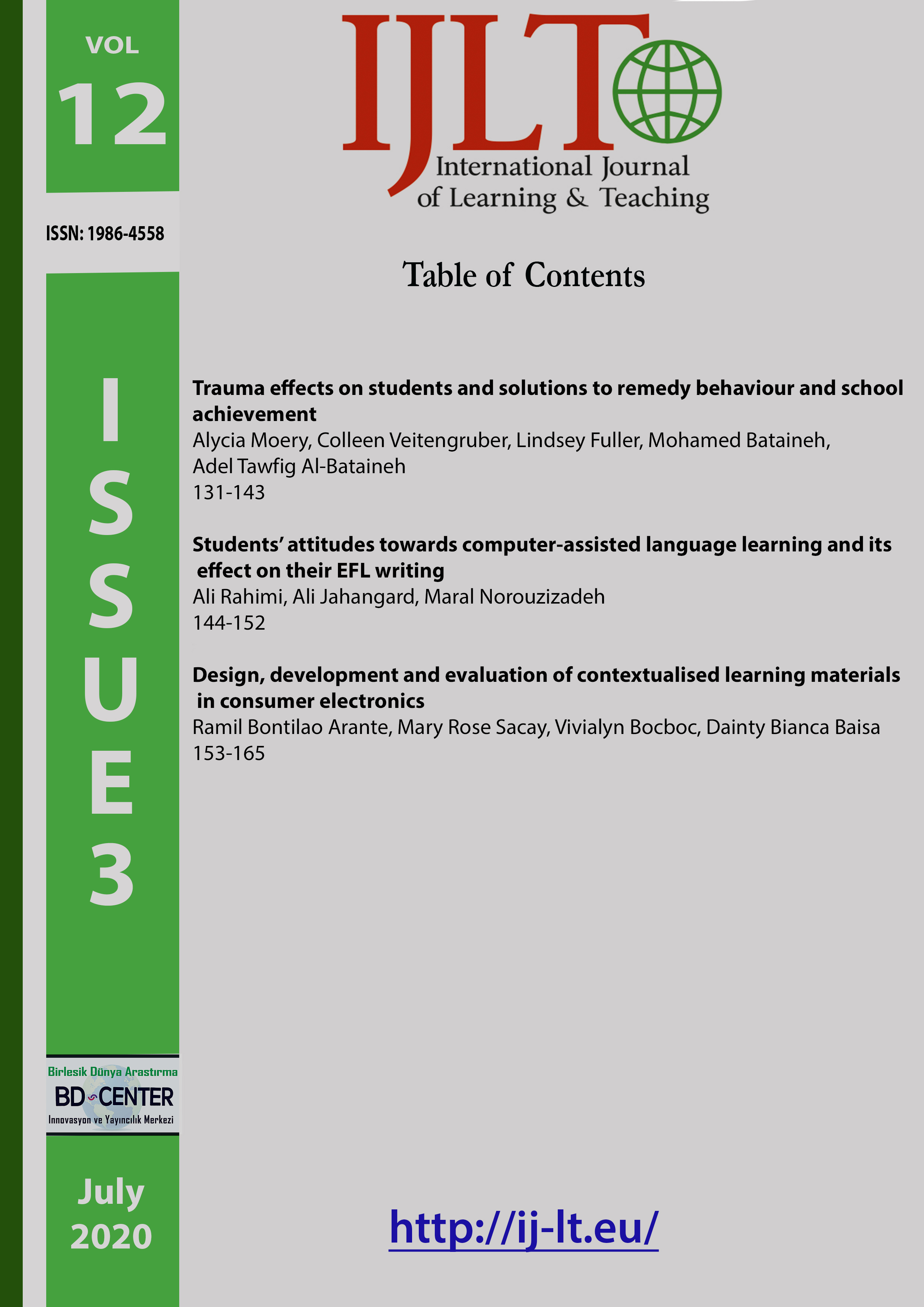Design, development and evaluation of contextualised learning materials in consumer electronics
Main Article Content
Abstract
This study aimed to design and develop a learning material in consumer electronics servicing (LM-CES) for grade 7 technology and livelihood education (TLE) for La Union National High School, Cabadbaran City, Philippines, and to address the problem of scarcity of instructional materials. Using the developmental research design, the LM-CES followed the analysis, design, develop, implement and evaluate model. The participants of the study are limited to the teacher education students of Caraga State University Cabadbaran Campus who provided essential comments and ratings of the learning material (LM) by using a given rubric and faculty members who are experts in the field due to the threat of the global pandemic. It has also undergone teaching demonstration evaluation for its content, organisation/clarity, completeness, grammar/mechanics, documentation, delivery and interaction. The overall rating from the peer evaluators was 2.99 with a descriptive rating of satisfactory or proficient. It implies that the researchers still need to enhance the lesson towards its completeness in order to attain its objectives. To further enhance LM-CES, a test run of the LM on its target end users in the actual classroom setting as well as an evaluation by some TLE teachers, who are also experts in teaching the subject, are hereby recommended.
Keywords: Contextualised, design, development, evaluation, instructional materials, learning materials.
Downloads
Article Details
Authors who publish with this journal agree to the following terms:
- Authors retain copyright and grant the journal right of first publication with the work simultaneously licensed under a Creative Commons Attribution License that allows others to share the work with an acknowledgement of the work's authorship and initial publication in this journal.
- Authors are able to enter into separate, additional contractual arrangements for the non-exclusive distribution of the journal's published version of the work (e.g., post it to an institutional repository or publish it in a book), with an acknowledgement of its initial publication in this journal.
- Authors are permitted and encouraged to post their work online (e.g., in institutional repositories or on their website) prior to and during the submission process, as it can lead to productive exchanges, as well as earlier and greater citation of published work (SeeThe Effect of Open Access).
